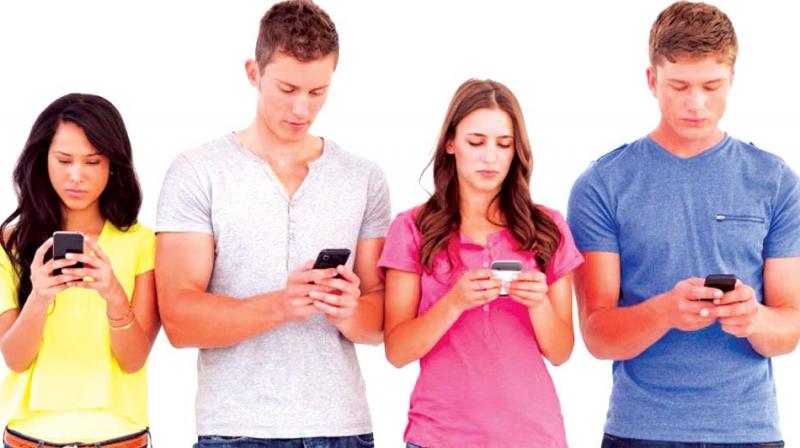Study reveals smartphone use makes us more distracted
People who are uncomfortable with their own and others' emotions may be more comfortable online.

Our digital lives and excessive smartphone use may be making us more distracted, distant and drained, a study has found.
For instance, even minor phone use during a meal with friends was enough to make the diners feel distracted and reduced their enjoyment of the experience, researchers said.
"People who were allowed to use their phones during dinner had more trouble staying present in the moment," said Ryan Dwyer, of the University of British Columbia in Canada.
"Decades of research on happiness tell us that engaging positively with others is critical for our well-being. Modern technology may be wonderful, but it can easily sidetrack us and take away from the special moments we have with friends and family in person," Dwyer said.
Researchers conducted two studies - a field experiment in a restaurant and a survey. The restaurant experiment included more than 300 adults and university students in Vancouver, British Columbia.
Participants were either asked to keep their phones on the table with the ringer or vibration on or to put their phones on silent and place them in a container on the table during the meal.
After eating, the participants filled out a questionnaire detailing their feelings of social connectedness, enjoyment, distraction and boredom, as well their phone use during the meal.
The researchers found that people who had their phones easily accessible not only used them more, but they also reported feeling more distracted and enjoyed the experience less.
The survey portion included more than 120 participants, who were surveyed five times a day for one week and were asked to report on how they were feeling and what they had been doing in the 15 minutes before completing the survey.
Results showed that people reported feeling more distracted during face-to-face interactions if they had used their smartphone.
The students also said they felt less enjoyment and interest in their interaction if they had been on their phone.
"The survey findings were especially notable because of the negative effects of phone use among university students, who are commonly known as digital natives," said Elizabeth Dunn, of the University of British Columbia.
"We assumed that this generation would be more adept at multi-tasking between using their phones and interacting with others, but we found out even moderate levels of phone use undermined the benefits of engaging with others," said Dunn.
Another study found that compassionate people spend less time on social media than people who are more self-centered and narcissistic.
In addition, people with lower emotional intelligence, or those who have difficulty identifying, describing and processing their emotions, used social media more often than those who are more in touch with their feelings, according to the study.
"People who are uncomfortable with their own and others' emotions may be more comfortable online," said Sara Konrath, from Indiana University in the US.
"We think that they may prefer text-based interactions that allow them more time to process social and emotional information," said Konrath.

